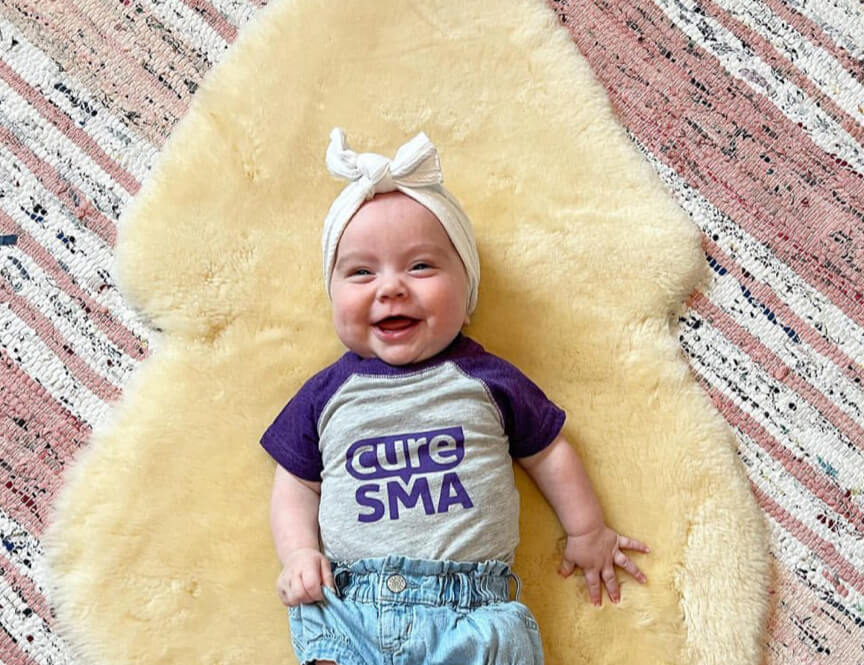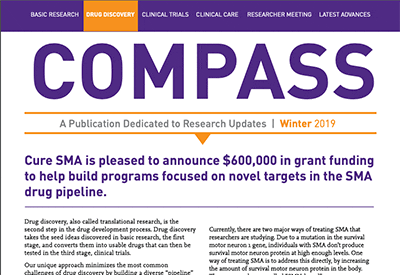Clinical trials for spinal muscular atrophy (SMA) help researchers answer important questions about the disease and investigational drugs, providing information that may help the development of future medical treatments. Although there is now an approved treatment, clinical trial participation may be a consideration for many families and individuals affected by SMA.
Funding for clinical trials can come from physicians, medical institutions, foundations, voluntary groups, pharmaceutical companies, or federal agencies such as the National Institutes of Health (NIH), the Department of Defense (DOD), and the Department of Veteran’s Affairs (VA).
Cure SMA has invested over $20 million for early stage drug development, with another $6.5M to conduct and prepare for clinical trials. Using our connections in the family, medical, research and industry communities, we continue our collaborative efforts to improve the efficiency of clinical trials.
Information About Participating in a Trial
The following is a summary of the issues you may consider when choosing to participate in a clinical trial. For a more detailed description on clinical trial participation, download our care series booklet, Learning About Clinical Trials.
Benefits and Risks
A well-designed and well-executed trial offers many benefits. By participating, you can:
- Advance knowledge about SMA, contribute to the development of a potential treatment, and help others affected by SMA in the future.
- Potentially receive access to an investigational drug.
- Receive appointments with an SMA study team.
- Receive trial-related care, monitoring, and assessments.
Possible risks:
- There may be unpleasant, serious, or even life-threatening side effects to experimental drugs.
- The experimental drug might not be effective.
- The protocol may require more of your time and attention than a standard course of treatment, including trips to the study site, more drugs, hospital stays, or complex dosage requirements.
What Are the Responsibilities of Participants?
Participation is always voluntary and you or your family member can withdraw at any time and for any reason (or no reason at all) – and doing so will not affect the care that is being provided or that may be provided in the future.
Some SMA clinical trials may include travel support and reimbursement for parking, meals, and other expenses. This may be helpful for families that need to travel a long distance to the clinical trial location, or that have a lengthy appointment or overnight stay. It is important that you understand the kind of travel support that will be available to you before you make a decision to participate.
There are certain responsibilities that clinical trial participants (or family members, depending on the age of the participant) are asked to follow. These may include:
- Following all instructions given by the study team.
- Attending all scheduled visits.
- Completing questionnaires about the status of the participant between visits.
- Telling the principal investigator of any new health-related problems. (Even if you don’t consider them to be caused by the clinical trial or the investigational drug, any small change is very important to report.)
- Telling the principal investigator about any new medications or changes in doses or the frequency of medication.
- Being mindful about discussing the clinical trial with other participants, including whether or not you think you or your family member may be receiving a placebo or sham.
Considerations for parents of children with SMA and suggested questions to ask the principal investigator can be viewed on pages 21-22 of the Learning About Clinical Trials booklet.



